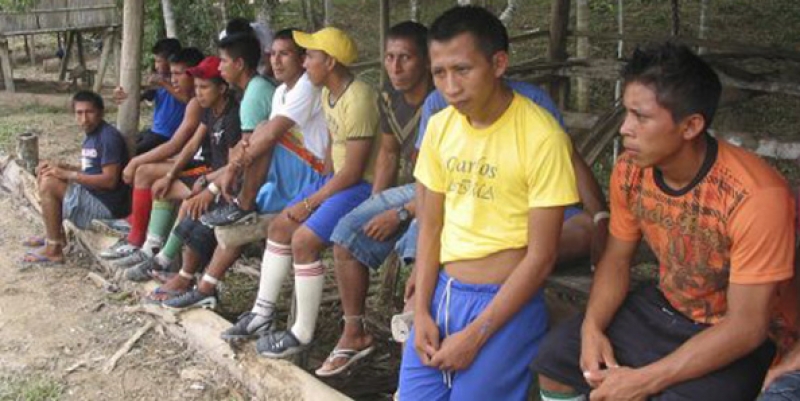A Spine-Tingling Cry

“Just before I went to bed, I heard the sound of wailing,” wrote Danica Rich, missionary in Brazil. “I had never heard that sound before, and I didn’t know what it was. It sent a sad shiver through me.” It wasn’t until morning that she would learn that an important witchdoctor from upriver had lost his battle with tuberculosis.
A Time to Grieve
“Because of his death, we heard ... nobody would be allowed to work for seven days,” wrote Danica. “No one at all. The men could not cut gardens. The women could not work on their beads. It was to be a time of grieving for all the people.”
Danica and her husband, Jevon, couldn’t help but wonder if it was all about grief and respect for the deceased -- or if there was more behind it.
Conflicting explanations arose over the next few days. Some said that if a person worked during the specified time, someone else would die; others said that doing so would make them lazy.
Confusion Before Clarity
The waters were to get muddier before they cleared. A few days later workers showed up at the Rich’s house. Awkward moments passed as Jevon and Danica tried to understand why they could work. Only four days had passed since the death -- not seven. But the workers insisted it was fine.
When their co-worker Palmira came by the house, she asked them, “Why does one person say seven days, and another says four?”
“You don’t understand our culture,” the worker said. “The people ... on the other river say it is ten days, but they aren’t in charge here. The man in charge upriver says seven days, so some people aren’t working for seven days. … Floriano [the oldest man in his community] told us we could wait four days. So we didn’t work for four days.”
A Crucial Point
“That is why,” he continued, “I say to my people, ‘God’s Word is not like that. In our culture one person says one thing and another says another. But God’s Word is not like that. It is already written down. It cannot be changed.’”
“I think he nailed a crucial point right on the head with those comments,” wrote Danica. “The difference between the oral traditions of men and the written Word of God.”
Pray as outreach continues with the people groups in Brazil, that more people would grasp these important truths.
You can read more about this on Jevon and Danica Rich's blog.
